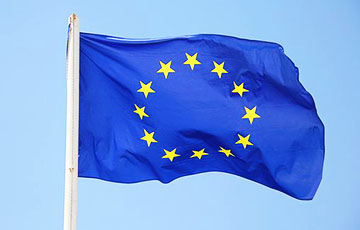Politico: Russia's War Against Ukraine Creates New Political Consensus In EU
- 24.05.2024, 14:36
- 6,492

The views of the European politicians as well as the public have changed.
The European public and politicians agree that EU countries should do more to expand arms production. This is evidenced by the results of the latest Eurobarometer poll, as well as the draft EU strategic agenda, which was reviewed by Politico.
Russia's full-scale invasion of Ukraine has dramatically changed the rhetoric around defence spending, putting it at the top of the EU-wide agenda - often at the expense of other policy areas such as dealing with climate change.
The Eurobarometer poll found that 77% of respondents support a common defence and security policy among EU countries, and 71% agree that the Union should strengthen capabilities in producing military hardware.
Politicians also generally agree that this should be done.
There is a "prevailing consensus among EU leaders regarding the need to take greater responsibility for security and defence" in accordance with the draft strategic agenda - a document that is negotiated every five years and outlines the Union's goals.
EU officials are finalising the draft under the coordination of European Council President Charles Michel. The goal is to present the document to EU leaders next month.
These efforts are supposed to create the internal market of defence products and services, strengthen production capacity and promote joint procurement.
Yet boosting arms production means increasing defence spending. European countries have been raising defence spending for about a decade - since Russia's illegal annexation of Crimea in 2014 - but the pace has accelerated significantly amid pressure from former President Donald Trump and then Russia's full-scale invasion into Ukraine.
NATO says two-thirds of its 32 members will meet the goal of spending at least 2% of GDP on defence this year. Now countries such as the UK and Poland are calling for this figure to be raised.
The EU's strategic agenda is also looking at where to find extra money for defence.
The evolving document envisages creating a new defence fund for European projects by expanding the mandate of the European Investment Bank. EU finance ministers are already working on this, changing the bank's rules to make it easier to lend to defence projects.
The document also points to the possibility of issuing EU defence bonds. However, the "frugal" countries, led by Germany, are not keen to expand the Union's overall borrowing.
The proposal does not mention the use of funds from the European Stability Mechanism, which provides emergency financial aid to eurozone members. This idea has already been discussed in Brussels but has not been supported.










